

Nick’s Page

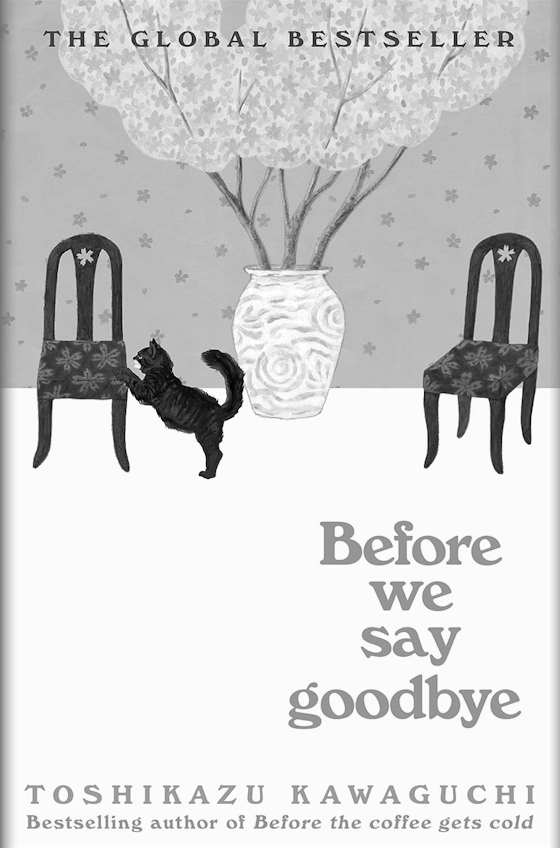 The fourth book from this rather enjoyable series: at least it had been rather enjoyable up to this book. But i’m beginning to feel that Toshikazu is beginning to get a bit repetitive and the cafe is beginning to become a little stale.
The fourth book from this rather enjoyable series: at least it had been rather enjoyable up to this book. But i’m beginning to feel that Toshikazu is beginning to get a bit repetitive and the cafe is beginning to become a little stale.
I think that Toshikazu is simply rushing out books and not really making any effort to create something new and interesting, which is a shame. I really feel that what this series needs is for Toshikazu to just put it down for a while and not come back to it until he has something new and interesting to bring to the cafe.
That’s my thoughts on the matter, it really doesn’t need to be ruined to meet a deadline, either with the publisher or with Toshikazu’s bank account.
Bye for now.

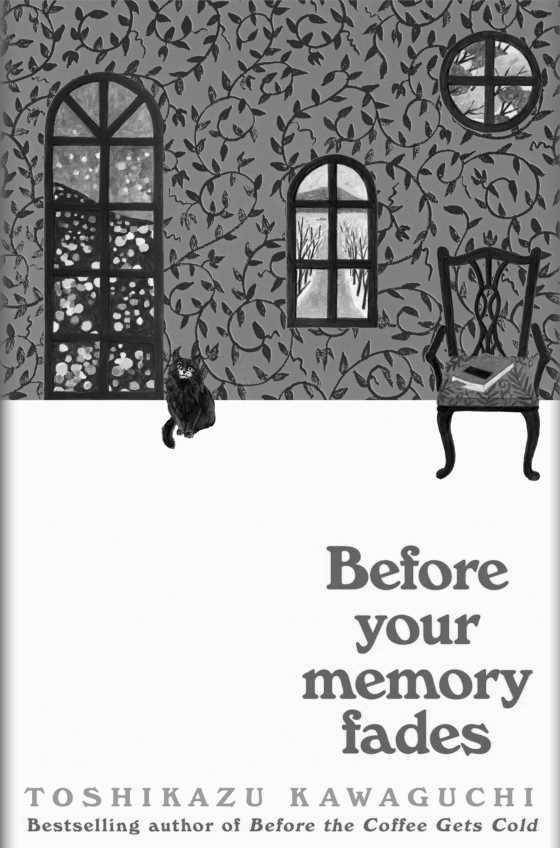 The third book in the Before The Coffee Gets Cold series, and what a great book.
The third book in the Before The Coffee Gets Cold series, and what a great book.
If you haven’t read any of this series yet then i really, whole heartedly, suggest you get back to the beginning and give them a go. The time-travelling-chair-in-a-cafe really is such a great story telling device, especially with the rules that come along with it.
And it’s in those rules that the stories shine. The main one being that you cannot change anything in the present by going back to the past. This rule really does sort the wheat from the chaff and creates stories that are deep and meaningful for all of us.
This third book takes us away from the first cafe to another cafe in Japan with it’s own chair and ghost. The owner has gone away so some of the crew from Tokyo have taken over because only a female over the age of 7 years, from their family, can pour the coffee.
A lot of this book is about death, and how we all deal with the death of a loved one, and the ending is incredible: Toshikazu really nailed the ending, it’s so perfect and so moving. It’s not often that my eyes get soggy at the end of a book, but this one did it perfectly. While the whole book is really good, it’s only when you get to the ending that you realise that it’s all been about building up the ending, where Toshikazu brings everything to a perfectly sharp focus.
And don’t forget, the next book in the series, Before We Say Goodbye, is coming out in September 2023, so be sure to put that in your diary.
Bye for now.

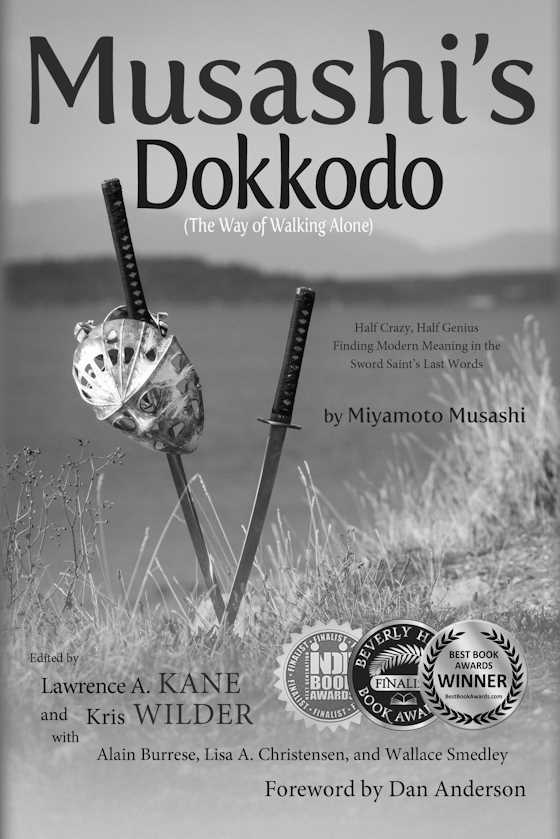 Just before Musashi died, he wrote a set of precepts for his favourite student. In this book the precepts are discussed one by one by five martial artists from different backgrounds and careers.
Just before Musashi died, he wrote a set of precepts for his favourite student. In this book the precepts are discussed one by one by five martial artists from different backgrounds and careers.
A really good look at Musashi and his ideas with five different interpretations of both the man, the legend and his precepts.
A must read for those of us who are interested in Japanese culture, especially from the feudal era.
Bye for now.


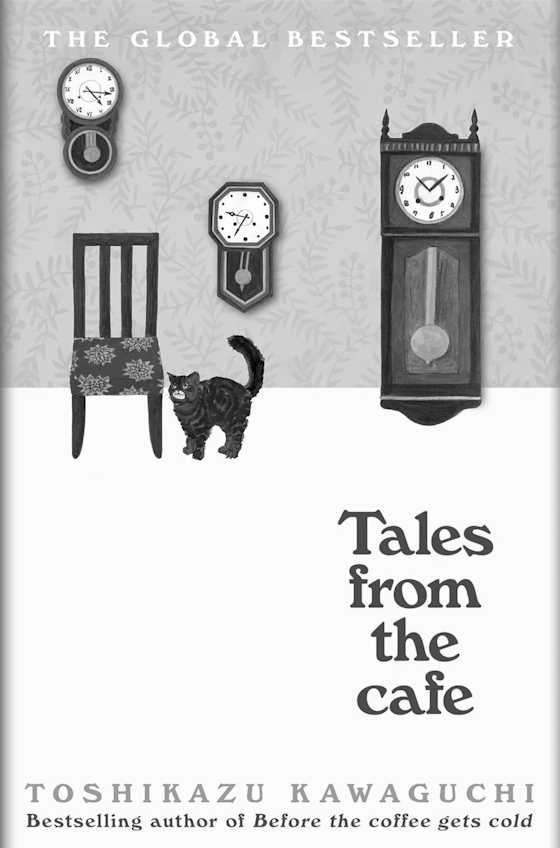 I soooo enjoyed Before the Coffee Gets Cold so i was really looking forward to some more tales.
I soooo enjoyed Before the Coffee Gets Cold so i was really looking forward to some more tales.
And i wasn’t disappointed.
One thing that really stood out in this book was that all the niggly little questions that the first book raised got answered along the way: i won’t say what as it may spoil things. So it was rather good that as i started the book and i had questions in my mind that as i went along all the questions got dealt with. I imagine that Toshikazu had quite a few people asking these questions after reading the first book and it’s good to see that they all got answered.
Other than that, it’s pretty much more of the same as the first book whereby we have four people wanting to travel in time to make something right with someone. We also get to know the cafe staff and regulars a lot more along the way.
So yeah, great sequel and i really hope that Toshikazu thinks up a few more in the future and keeps the cafe going: it really is a good stage within which to fit stories into.
I continue to add my gripe from the first book, in that, there’s a cat on the cover but no cat in the book whatsoever. Toshikazu, if you ever read this, please put a cat in the next book.

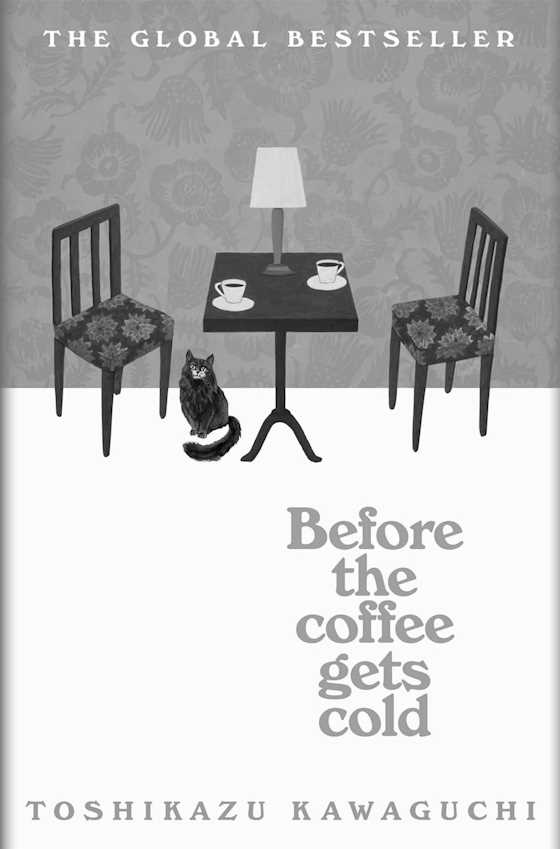 Somewhere in Tokyo there’s a tiny basement cafe with no windows, three clocks telling different times, Mocha coffee, and has a special seat with a ghost that sits in it reading a book while drinking said coffee. Once a day the ghost needs to go to the toilet and while she’s away from the seat anyone who sits in it can be served a coffee and travel back in time: but there are rules.
Somewhere in Tokyo there’s a tiny basement cafe with no windows, three clocks telling different times, Mocha coffee, and has a special seat with a ghost that sits in it reading a book while drinking said coffee. Once a day the ghost needs to go to the toilet and while she’s away from the seat anyone who sits in it can be served a coffee and travel back in time: but there are rules.
Rule 1: nothing you do in the past will ever change the present.
Rule 2: you cannot leave the seat.
Rule 3: you can only meet people who were in the cafe at the time you go back to.
Rule 4: you only get to use the seat once, no second chances.
Rule 5: you must finish the coffee before it gets cold.
If you don’t drink the coffee before it gets cold you become a ghost. It doesn’t say whether you replace the existing ghost or if that’s how the existing ghost came to be, just best not let the coffee get cold.
The book is divided into 4 chapters, each with it’s own time travel escapade. The character list is quite small as it only involves the staff and customers of the cafe — which is a very small cafe — this gives us a much more intimate relationship with each of them and their problems.
As the book builds so does the emotional level of each journey, getting deeper and deeper until the very last journey which i found to be quite a damper of ones eyeballs.
The main point of these stories seems to be that if you could go through time to meet someone but meeting them wouldn’t change a thing in the present what exactly would be the point? This is where most temporal sci-fi falls flat on its face because we always get to the paradox of you wouldn’t have gone back in time if you changed the reason for going back in the first place: this book doesn’t make those temporal mistakes.
All in all, very enjoyable and emotionally moving.
My only gripe: why’s there a cat on the cover when there isn’t a cat in the book?
And the journeys don’t end in this book, there’s a sequel, Tales from the Cafe, which has another 4 characters and their respective journeys in time: maybe the cat gets a mention in this. I’ll be sure to write a review when i get around to reading it.

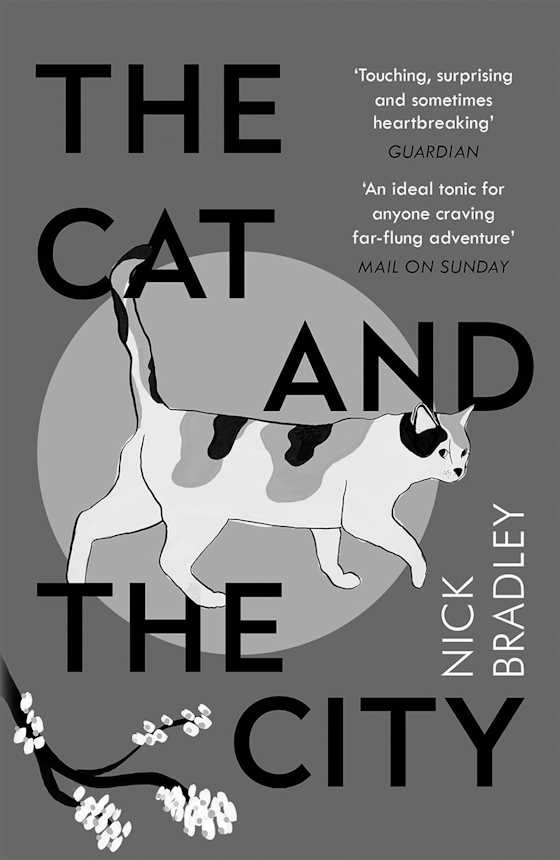 There are parts of this book that totally felt like Nick has taken Ghostwritten and number9dream, put them both in a mixing bowl, threw a calico cat in and stirred them all together. Which is not a bad thing as they’re both excellent reads, and, as it turns out, so is The Cat and the City. Although, having said that, Nick does have his own writing style and the underlying theme of the story is completely different.
There are parts of this book that totally felt like Nick has taken Ghostwritten and number9dream, put them both in a mixing bowl, threw a calico cat in and stirred them all together. Which is not a bad thing as they’re both excellent reads, and, as it turns out, so is The Cat and the City. Although, having said that, Nick does have his own writing style and the underlying theme of the story is completely different.
This is one of those reviews where i feel i can’t say as much as i’d like to say without giving away the book’s ending, which is a bit annoying, both for me and, i imagine, anyone wanting a review. So i’ll just do my best without ruining it for anyone: i’m sure if anyone wants to have it ruined by reading a more in depth review they’ll soon find one somewhere on the internet.
At first this is what appears to be a collection of short stories, however, each is interconnected by a calico cat and various characters that keep appearing around various parts of Tokyo. Slowly, over time, a back story begins to coalesce.
I wouldn’t put this down as an easy read because you do have to keep track of some of the characters who randomly appear — and their relationships — add to this that most of the characters have Japanese names and it becomes a bit of a challenge. Then there’s the Japanese terminology that is peppered throughout, for which most of us will need to stop occasionally and use “Look Up”. All in all it is quite a challenge but it is well worth the investment if you have the sort of mind that likes reading books that require you to make a bit of effort. If, however, you like your stories spoon fed to you by mother at bedtime then i would probably not bother as you’ll probably just end up getting totally lost, confused, annoyed and ultimately blame a really good book for your own failings.
One could ask why is all this chaos necessary? I would suggest that it’s meant to portray Tokyo and it’s metropolitan area of 37,468,000 people, all passing on the streets, trains, taxis, etc.; pretending to ignore each other while obviously being continually affected, being extremely polite while ultimately suffering inside, and being so distant from each other while being so very near.
Anyway, like the two David Mitchell books, mentioned above, i really enjoyed it and if you do make the effort i’m sure you will to as it’s a great story spread out all over one of the world’s greatest cities.


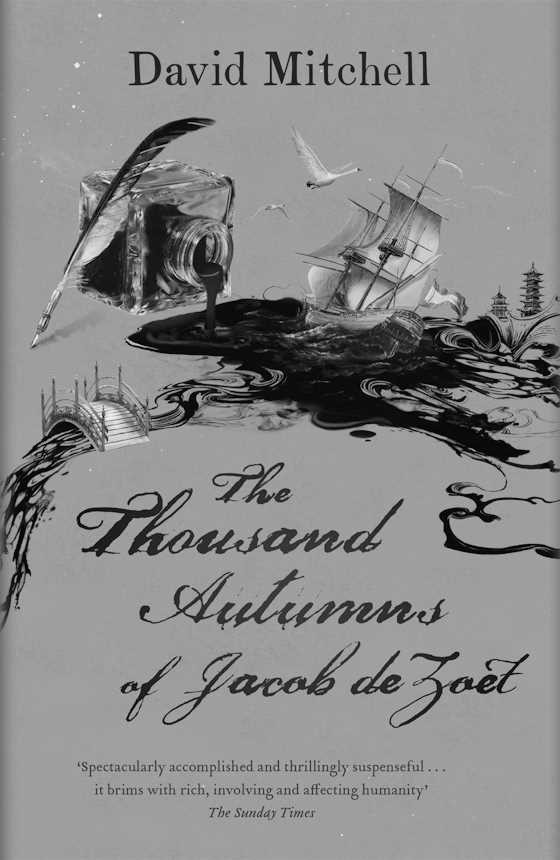 And onto David Mitchell’s fifth book…
And onto David Mitchell’s fifth book…
It’s certainly a change from his other books, being based in Japan at the end of the 18 Century at the Dutch East India Company’s island/trading post, Dejima.
When the Shoguns closed Japan to westerners they left Dejima as the only doorway into Japan for Europe’s trade, and it was the Dutch who ran Dejima.
The book centres around actual historical events, but names and dates are changed to allow David to weave his tale. And the tale takes us inside ancient Japanese nefarious occult beliefs and practices as we follow our protagonist and his love for a Japanese midwife who becomes entrapped within the cultists’ lair, all the while having to deal with the political machinations within the interplay between Dejima, Nagasaki and the Shogun in Edo.
Once more, a great piece of story telling from this incredible writer, and a also an incredibly interesting look inside the life and work of Dejima itself at a very interesting time in Japanese history. Well worth a read after you’ve read David’s first four books, but do expect something rather different.
And i’m now embroiled in David’s 6th book, The Bone Clocks, which is more in style with his first four books and i’m enjoying immensely. I’ll let you know what i think soon.

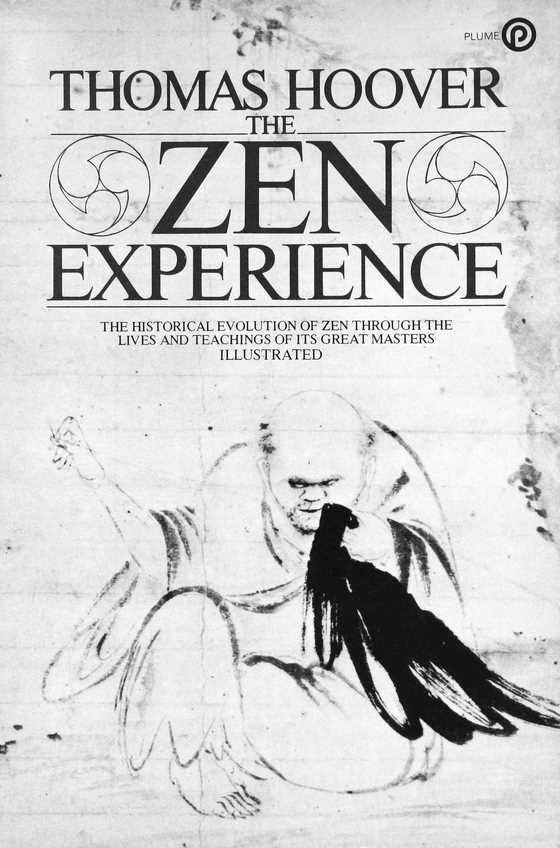 Been quite a while since i read this, but do remember it being a very interesting read on the history of Zen. It tells Zen’s full story through fascinating tales of its most influential masters of its various historical schools, all the way from its roots in India and into modern Japan.
Been quite a while since i read this, but do remember it being a very interesting read on the history of Zen. It tells Zen’s full story through fascinating tales of its most influential masters of its various historical schools, all the way from its roots in India and into modern Japan.
If more people read about the history of the world’s religions instead of fighting over them the world would be a much nicer place.

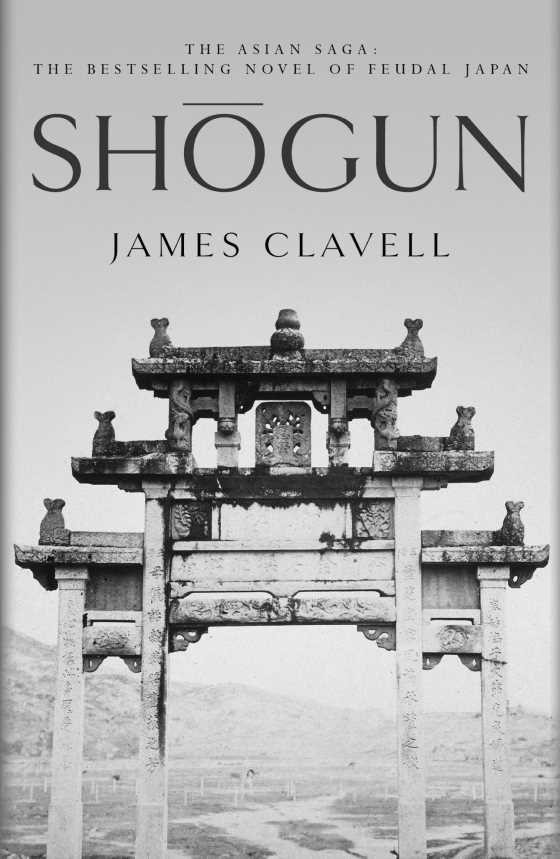 I’ve read this 3 times already and now i have all of The Asian Saga books it’s only a matter of time before it will certainly get read again and give it a real review, a truly excellent novel.
I’ve read this 3 times already and now i have all of The Asian Saga books it’s only a matter of time before it will certainly get read again and give it a real review, a truly excellent novel.

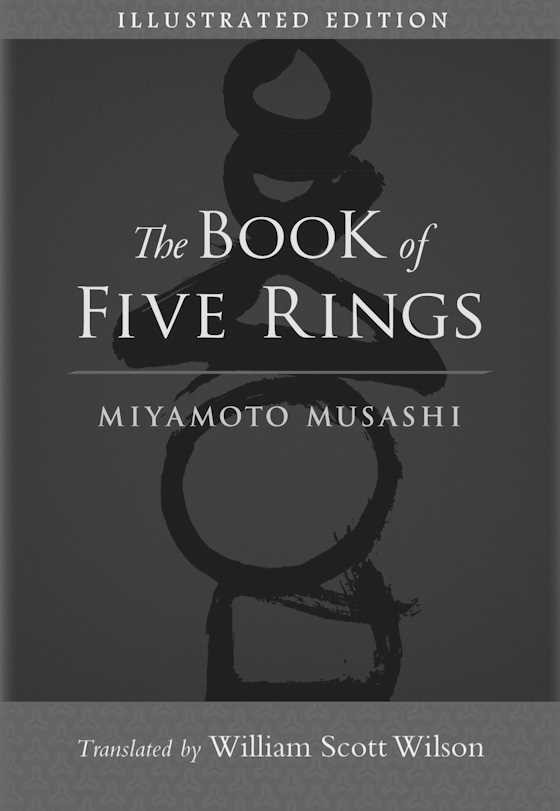 Another book that’s sat on my Kindle for years unread, but having just finished David Kirk’s books it really felt like the right time to read this.
Another book that’s sat on my Kindle for years unread, but having just finished David Kirk’s books it really felt like the right time to read this.
It’s hard to judge this book in any real contemporary terms because it simply has no place in the contemporary world. It’s an anachronism from a time and place that is no more and will never be again.
It is aimed solely at the samurai warrior, but maybe there are those who are ultra competitive who do contact sports, and also military personnel, that could still gain a lot from reading it: which doesn’t apply to me.
It is, however, an incredible view into the mind of one of the greatest strategists (swordsmen) from Japanese history, and it really gives you the genuine thoughts and attitude of a Samurai in regards to fighting and killing with swords. It’s probably the most amoral thing i’ve ever read, and in that aspect alone it’s quite wonderful because it is so genuine and fascinating.

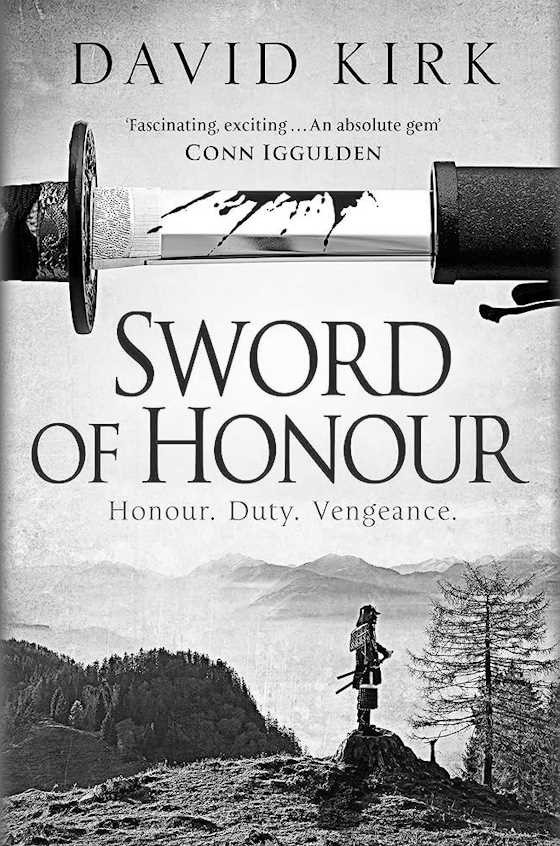 I loved this book. Far better than Child of Vengeance.
I loved this book. Far better than Child of Vengeance.
Looking back over the 2 books, it felt to me like David gained in confidence writing tales about Musashi and also that, the more he wrote, the more he came to know him better: like he’s beginning to get inside his head more.
But then i suppose the first book was more about Musashi the youth, just beginning to find himself, and this book is more of Musashi as a young man puzzling over what he’s found and finding more, and this reflects well in the writing of both books.
Once again, David’s writing is superbly descriptive without overdoing it. Just like the first book, the story just keeps on moving and i just didn’t want to put it down: there are no pregnant pauses awaiting within, it’s just full gas all the way: find a comfy chair and buckle in.
I do hope book 3 in this series won’t be too long, i’m hooked!
But, in the meanwhile, i’ve found The Book of Five Rings: The Classic Guide to Strategy, written by the real Miyamoto Musashi, and i’ll be diving head first into that now.

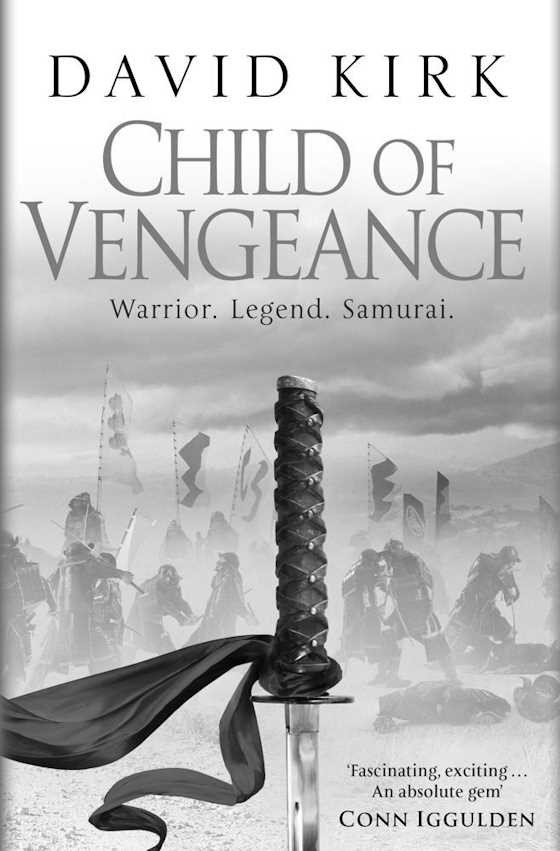 David has taken the tales of Miyamoto Musashi and created his own story from these, so some of this is loosely based in what is told of the real man and some of this is based entirely from David’s imagination.
David has taken the tales of Miyamoto Musashi and created his own story from these, so some of this is loosely based in what is told of the real man and some of this is based entirely from David’s imagination.
All told, it works really well, but there just seems a step too far here and there, which, for me at least, was distracting a little. While it has been compared to Shogun by some, for me, it just doesn’t have that same level of believability to it.
But then, if i want the real tales of Musashi then i could, of course, go and read them.
It certainly keeps you reading. It’s pretty much non stop without the annoying pregnant pauses of most stories, and David really does portray the period very well.
All in all, i got this book and the next in the series for 99p each on Kindle — which is an absolute bargain for this kind of story telling — and i’ll be diving back into Musashi’s world in the second book of this series, Sword of Honour, later today: i’m looking forward to it very much.

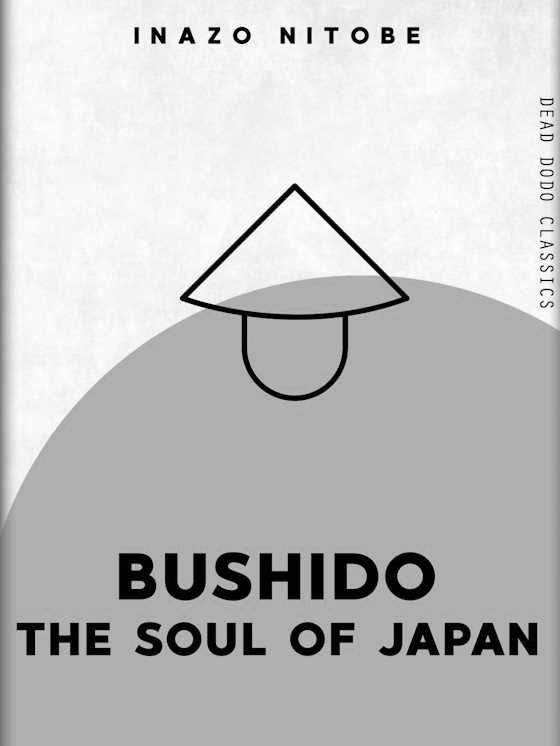 I’ve always found Japanese history, particularly that of the Samurai, fascinating, but living on the other side of the world in a completely different time, and in a completely different culture, one can never truly know what these people and the time and place they lived in was really like.
I’ve always found Japanese history, particularly that of the Samurai, fascinating, but living on the other side of the world in a completely different time, and in a completely different culture, one can never truly know what these people and the time and place they lived in was really like.
What we can do is simply enjoy these snap shots from the past about a culture long gone that we may still have something to learn from.
Originally published in 1900, the setting for this book is between the end of feudalism and the beginning of modern Japan and is, to my mind at least, a wonderful view of the past and what that can possibly mean for the future.
A very interesting book for anyone who enjoys reading and learning about Japan, especially the historical influences of Bushido on modern Japan.
I only gave it 4 stars on goodreads as it does use some very long and not often used words; i found myself using “Look Up” on my Kindle a great deal which did detract from the flow of the book. Having said that, it’s definitely worth the effort and you do learn a few things along the way, so please don’t let that put you off an otherwise really good book.
And thus begins my little, Japanese reading festival, next book up is Child of Vengeance by David Kirk.
